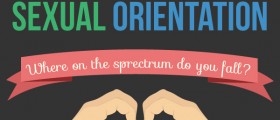
A study was published in March issue of the Hastings Center Report brings out the issue mentioned above again. The study suggests that the issue is far from resolved and that the voluntary guidelines set by the American Society for Reproductive Medicine are sometimes ignored. For example, in the study, 105 ads were evaluated; being published in 63 newspapers. Only 50% of the ads met the standards of American Society for Reproductive Medicine (ASRM) that the compensation of egg donors should be $5,000 or less. This amount is set as a standard and is considered a fair compensation for the donor and yet not high enough to be exploitative, or human eggs to be considered as a commodity. Approximately one fourth (27%) of the ads offered compensation between $5,000 and $10,000 which is actually still in the limits of ASRMs guidelines, but in case the amount offered for compensation must be justified. And almost one fourth (23%) of revised ads were violating ASRM guidelines and were offering more than $10.000 in their ads.
It is very important to bring out that the ads that were violating the rule of ethics were mostly placed by donor agencies, and not infertility clinics or individuals. These kind of ads usually appeared in the papers of prestigious universities, such as Harvard and Brown, which also have very high scholarships, therefore it is justified to think that young and fertile middle class women will be interested in so generous payment. In addition, some of these ads request applicants with specific attributes, such as a particular ethnicity, high SAT scores or brown hair. Only few ads that violate guidelines have (serious) consequences, which suggests voluntary guidelines used for egg donor solicitation in US do not work, although as published in the editorial accompany the study, ASRM member believe the system works well.
- www.who.int/surgery/challenges/disease-control-priorities.pdf
- www.who.int/biologicals/expert_committee/TRS_979_62nd_report.pdf
- Photo courtesy of careworldtv by Wikimedia Commons/ YouTube: www.youtube.com/watch?v=kTrW1_2wh7Q

















Your thoughts on this
Loading...